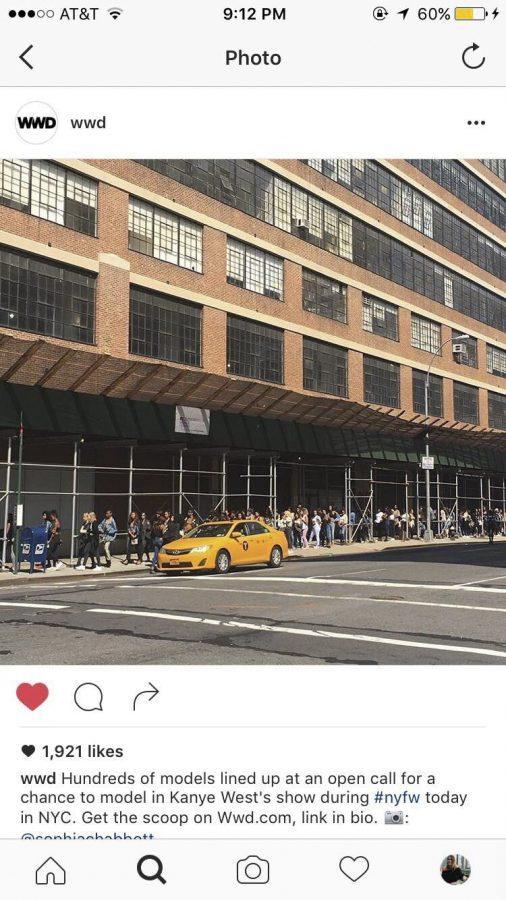Yeezy’s Casting Raises Questions
The Yeezy Season 4 model casting call drew a very large crowd, even with the its specific multiracial requirement.
September 12, 2016
Another week, another controversy Kanye West could have easily avoided but didn’t. Four days before his highly-anticipated Yeezy Season 4 fashion show, West made headlines once again when he tweeted what seemed to be a failed attempt at broadening his casting call to include non-models and fans. What was intended as a simple casting call sheet became a solid publicized declaration of West’s preference for “multiracial women only.”
Minutes after West tweeted out the casting call sheet to his 26 million followers, people began trying to dissect the true meaning behind the term “multiracial” in order to understand what type of women West expected to cast in his show. It is a term that some of us use on a daily basis; yet it is not often that we are faced with the challenge of excavating and delineating its possible
harmful connotations.
If we lean on Google’s trusted ability to define words, we learn that “multiracial” is an adjective used to describe something made up of or relating to people of several or many races. The most obvious reason the casting call sheet was considered discriminatory is that some of the thousands — possibly millions — of the Season 4 model-hopefuls identify with only one race. It was black women’s understanding of this definition that prompted many angry reactions towards West’s disregard for those individuals whose blackness cannot be masked nor made more marketable by coming under the guise of being “multiracial.”
CAS sophomore Imani Johnson described her initial reaction as one of disappointment.
“As a dark-skinned girl, when I hear multiracial I immediately think ‘light-skinned,’” Johnson said. “And so, from my understanding, right now 2016 has been the best time to be a black girl; a lot of people are embracing their melanin, all shades and what not. [Kanye’s preference] was kind of like a slap in the face because it felt like it was dividing us again.”
As some suspected, West’s original intention was never to discriminate against black women nor anyone who identifies with a singular race. In response to the widespread criticism, West told Vogue that he wanted a wide representation of brown and black women, and the casting call was meant to achieve just that.
“How do you word the idea that you want all variations of black?” West said. “How do you word that exactly?”
CAS sophomore Kaylen Hayes hoped West would have appreciated more thorough black representation in his choice of models.
“Maybe he wants to create some sort of spectrum and wants there to be diversity in his casting, but it makes me feel some type of way when I’m a black female and I don’t consider myself to be multiracial,” Hayes said. “I want to see myself in his art.”
When we finally watched West’s show, we saw these variations of black. The range in the color of models was similar to that of his previous shows. However, assuming he did, in fact, abide by the “multiracial women only” rule, then Season 4 was a huge exhibition
of misrepresentation.
A version of this article appeared in the Monday Sept. 12 print edition. Email Medardo Perez at [email protected].
























































































































































